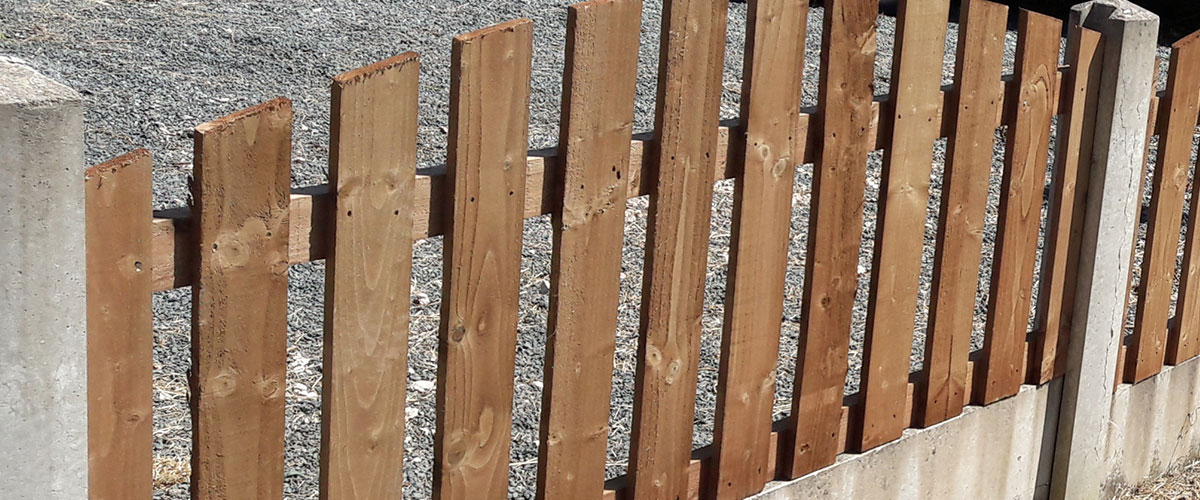06 / 02 / 19
At S Beech Timbers we fit quality wood fences throughout Barnsley and the surrounding area.
Whether you’re searching for single sided fencing, double sided fencing, or supalap fencing, we can provide and fit a range of fences that are designed and manufactured to last years.
With that in mind however, there are one or two ways of protecting and lengthening the lifespan of a fence so you and your family can enjoy it for years to come.
With that in mind, here are our top tips for looking after your garden fence:
If you’re looking to protect your new fence from the start, one of the best things you can do to protect it is to stain it soon after installation.
By doing so, you can protect it from dry and wet rot, as natural oils can soon diminish to the elements and a loss of oils will make your fence both dry and brittle.
We recommend using a linseed-based oil for the best possible results, as this kind of protection can help restore those missing oils.
It’s often recommended that you stain your fence at least once per year to offer maximum possible protection.
It goes without saying that a painted fence can last much longer than one that has not been treated by a paint brush.
As well as enhancing the appearance of the fence, paint helps protected against the elements, and by doing so every three to four years, you can offer the best possible defence against wind and rain.
Of course, it’s only natural for paint to peel and chip in places, so you might need to touch up affected areas.
It’s advised that you use a paint that contains a primer for best possible results.
We also advise resealing your wood at least once per year, usually after it has been painted.
If you want to do this quickly and with minimum effort, we suggest using a paint spraying unit, which you can pick up from your local DIY store.
Although we all love to tender our gardens, it is quite easy to forget that your fences also need love and attention.
Clear away all leaves and debris during winter to prevent accumulation around the base, which can lead to a whole host of issues, including wet rot, mould, and mildew.
You can also use white vinegar to clear away any stubborn dirt or stains that have appeared.
Use a solution of one cup of vinegar to four litres of water and apply to the fence. Give it around ten minutes to work and then wash it away with fresh water.
You can also use this solution to clean your fence of mildew, using the same technique.
If by chance you have some sort of faux wood, we also recommend a deep and thorough clean at least once per year to ensure that it is kept in good shape.
If you want any advice about keeping your fence in top condition, get in touch using our contact page.

Did you know that...
As well as providing quality timber and fencing products, we also offer an experienced fitting team to carry out the project.
More Info